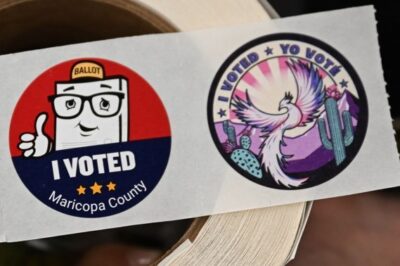Martin is a small city in southwestern South Dakota. It lies at the center of Bennett County, which is surrounded to the north and west by the Pine Ridge Indian Reservation and to the east by the Rosebud Reservation. Indians make up approximately 45 percent of the city's total population, and 36 percent of the city's voting-age population.
Martin has a well-documented history of racial conflict between Indians and whites. In the mid-1990s, for example, Martin saw a series of protests over a racially offensive homecoming tradition that depicted Indians in a demeaning and stereotypical way. Also in the mid-1990s, the United States Department of Justice sued and later entered into a consent decree with the local bank over alleged discrimination against Indians in the bank's lending and hiring practices. In early 2002, conflict resolution specialists from the Justice Department came to Martin in an attempt to quell rising hostility over claims of racial discrimination against Indians by the local sheriff and his deputies.
It was against this backdrop of racial tension in the winter and spring of 2002 that Martin adopted a redistricting plan for its six-member city council. That plan, known as Ordinance 122, divided the city into three wards. Each ward elected two aldermen to the city council, and all three wards contained a white supermajority of at least 62 percent of the voting-age population. The political deck was stacked against Indian voters.
Not surprisingly, every single candidate endorsed by a local Indian activist group and later identified by witnesses as the "Indian-preferred" candidate lost in the first three election cycles held under Ordinance 122. Some of those candidates were Indian. Some of them were non-Indian. All of them lost, leaving Indian voters without any effective voice in their city government.
That's why we were deeply disappointed in Wednesday's 7-to-4 decision of the 8th Circuit Court of Appeals dismissing a lawsuit brought by Indian voters against the City in 2002, soon after Ordinance 122 took effect. The lawsuit argued that Ordinance 122 prevented Indian voters from having an equal opportunity to participate in the political process and elect representatives of their choice in violation of the Voting Rights Act. This's decision means that Martin can continue to hold elections using a plan that gives white voters an overwhelming majority in all three of the city's wards.
We're also disturbed by the basis of the court's ruling. The majority opinion concluded that the plaintiffs, two American Indian voters, had failed to establish that white voters usually defeat the Indian-preferred candidates in city elections. As evidence, however, the court pointed not to city election results or even to county races, but to elections for relatively obscure state offices like the state lands commissioner and the state public utilities commission. Because the evidence showed that Indian and white voters in Martin tended to vote for the same candidates in these contests (none of which involved any Indian candidates) a little more than half of the time, the court concluded that elections under Ordinance 122 do not dilute the Indian vote.
We've got some time to decide what to do next. An appeal to the Supreme Court is possible. But despite this disappointing setback, we remain committed to fighting for Indian voting rights because we believe that every American deserves an equal voice in the political process.
As documented in this report, American Indians continue to face discrimination in the exercise of their constitutional right to vote. The report provides a historical overview of systemic discrimination against American Indians limiting their ability to participate in local, state and national elections, and highlights ACLU litigation challenging unlawful election practices on behalf of Indians in five western states: Colorado, Montana, Nebraska, South Dakota and Wyoming.
Wednesday's decision means that Indians will continue to lack a voice in their government, and without a voice, the atrocities and discrimination at the hands of government officials will likely continue.



